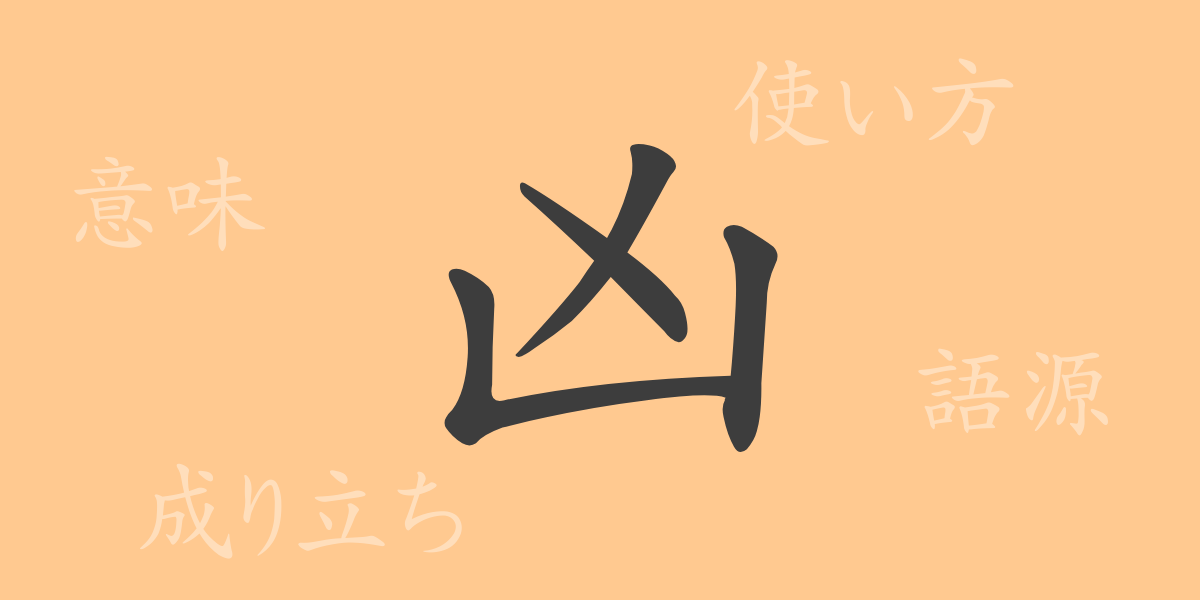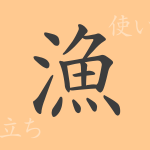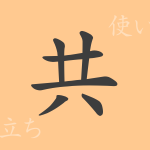In Japanese literature, numerous kanji characters are used, each imbued with deep meaning and history. Among them, the character “凶(きょう, kyō)”, symbolizing emotions and fate, holds a special significance. This article delves into the origin, meaning, and usage of the common kanji “凶(きょう, kyō)”, and explores the idioms and phrases associated with this intriguing character.
Origin of 凶(きょう, kyō)
The character “凶(きょう, kyō)” originates from ancient China. In old oracle bone script, it depicted a large curved bow. This imagery of a broken bow used for hunting evoked associations with unfortunate events and accidents, leading to its negative connotations of “misfortune” and “calamity”. Over time, the character evolved into its current form “凶(きょう, kyō)”.
Meaning and Usage of 凶(きょう, kyō)
The kanji “凶(きょう, kyō)” primarily signifies misfortune, disaster, and bad omens. In Japanese culture, it is well known as the opposite of “吉(きち, kichi)” (good fortune), often seen in fortune-telling slips (omikuji). “大凶(だいきょう, daikyō)” indicates extremely bad luck. In everyday language and news reports, it appears in terms like “凶事(きょうじ, kyōji)” (tragic event), “凶報(きょうほう, kyōhō)” (bad news), and “凶暴(きょうぼう, kyōbō)” (brutality).
Readings, Stroke Count, and Radical of 凶(きょう, kyō)
The character “凶(きょう, kyō)” has the following features:
- Readings: On-yomi – “キョウ(きょう, kyō)”; there is no specific kun-yomi.
- Stroke count: 4 strokes.
- Radical: The radical is “凵(かんにょう, kan’nyō)”.
Idioms, Proverbs, and Phrases Using 凶(きょう, kyō)
Idioms and proverbs containing “凶(きょう, kyō)” reflect its deep-rooted meanings in Japanese:
- 凶作(きょうさく, kyōsaku): Poor harvest; significantly bad crop yield.
- 凶暴(きょうぼう, kyōbō): Brutal and violent nature.
- 凶報(きょうほう, kyōhō): Bad news; unfortunate news.
- 凶器(きょうき, kyōki): A weapon or tool used to harm people.
- 凶徒(きょうと, kyōto): A person committing evil deeds; a vicious criminal.
- 凶夢(きょうむ, kyōmu): A bad dream; a nightmare.
Summary of 凶(きょう, kyō)
The kanji “凶(きょう, kyō)”, handed down from ancient times, has become a symbol of misfortune and dire circumstances through its evolution in shape and meaning. In Japanese culture, it is deeply ingrained in practices such as fortune-telling, where terms like “大凶(だいきょう, daikyō)” are used. While this character carries negative connotations, understanding the contexts in which these words are used leads to a deeper comprehension of language. Through idioms and proverbs, one can appreciate the unique nuances that “凶(きょう, kyō)” brings to Japanese expression.

























